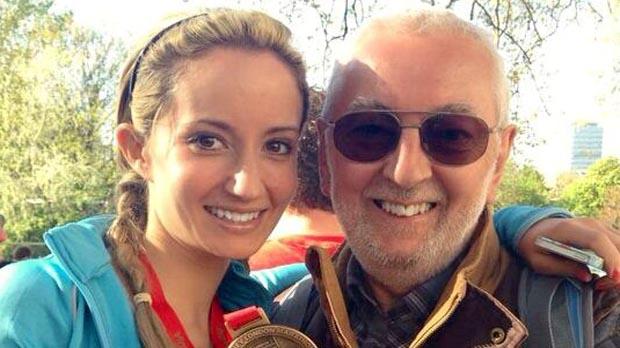
“I think it’s really important that people keep signing up to these type of trials to push research forward.”
Please note - this trial is no longer recruiting patients. We hope to add results when they are available.
This trial is looking at nilotinib for children and young people who have Philadelphia positive chronic myeloid leukaemia. It is for children who have just been diagnosed with chronic myeloid leukaemia (CML), or who have CML that is not responding to drugs called imatinib (Glivec) or dasatinib (Sprycel).
The trial is for children and young people up to the age of 18. We use the term ‘you’ in this summary, but of course if you are a parent, we are referring to your child.
Most people with CML have an abnormal chromosome called the  . You may hear this called Philadelphia positive leukaemia.
. You may hear this called Philadelphia positive leukaemia.
Doctors usually treat CML with biological therapies called imatinib or dasatinib. These often work well. But sometimes CML doesn’t respond to these drugs or becomes  to it. And some people cannot take these drugs because they have bad side effects. In this situation, doctors give adults a drug called nilotinib (also known as Tasigna) which works in a similar way to imatinib. Doctors now want to see if nilotinib will also be a useful treatment for children and young people.
to it. And some people cannot take these drugs because they have bad side effects. In this situation, doctors give adults a drug called nilotinib (also known as Tasigna) which works in a similar way to imatinib. Doctors now want to see if nilotinib will also be a useful treatment for children and young people.
Doctors do different tests to see how far your leukaemia has developed. This is called staging. There are 3 different stages in chronic myeloid leukaemia. These are the chronic phase, the accelerated phase, and the blast phase.
In this trial, researchers are trying to find out
You may be able to enter this trial if you are in 1 of the following situations
And as well as the above, you
 (Philadelphia positive)
(Philadelphia positive)If you are female and sexually active, you must be willing to use reliable contraception during the trial if there is any chance you could become pregnant.
You cannot enter this trial if you
 in the 3 weeks before you start the trial treatment
in the 3 weeks before you start the trial treatmentThis is a phase 2 trial. Doctors need at least 65 children and young people to take part. Everybody taking part has nilotinib.
Nilotinib comes as capsules that you take by mouth.
You take nilotinib twice a day. You take the capsules every day, but researchers call each 4 week period a cycle of treatment.
If you don’t have any bad side effects and your CML does not get worse, you can have nilotinib for nearly 2 years.
If after 2 years, you are doing well on the drug, there may be the opportunity to continue taking it in a further (extension) trial. Your doctors will talk with you about this.
You see the trial team and have some tests before you start treatment. The tests include
 )
) )
)
You go to hospital on the first day you take the nilotinib. You will spend the whole day in hospital because you will need a blood test 12 hours after you take the drug. You may need to stay in hospital overnight or stay nearby because you will need to have another blood test early the next morning.
You then go to hospital every 4 weeks. You have blood tests at each visit. You will also have regular ECGs throughout your treatment. You will have a DEXA scan and an X-ray of your left hand every year to make sure your bones are growing normally.
When you finish the treatment, a member of the trial team will contact you or your doctor about a month later to see how you are and whether you have any long term side effects. They may then phone you (or your doctor) every 6 months to see how you are.
The most common side effects of nilotinib include
We have more information about nilotinib.
Please note: In order to join a trial you will need to discuss it with your doctor, unless otherwise specified.
Dr Pamela Kearns
NIHR Clinical Research Network: Cancer
Novartis
If you have questions about the trial please contact our cancer information nurses
Freephone 0808 800 4040

“I think it’s really important that people keep signing up to these type of trials to push research forward.”